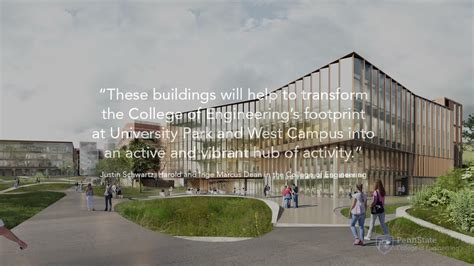Transformational Education for Aspiring Architectural Engineers
Pennsylvania State University’s Architectural Engineering program empowers students to become leaders in the design, construction, and operation of innovative and sustainable buildings and infrastructures. With a rich curriculum rooted in theory and practice, graduates of the program embark on careers that shape the physical environment around us.

Program Highlights
- Nationally Ranked: Penn State’s Architectural Engineering program ranks among the top 10 in the nation according to U.S. News & World Report.
- Industry-Expert Faculty: Students benefit from the expertise of renowned faculty members actively engaged in research and professional practice.
- Cutting-Edge Facilities: The program boasts advanced laboratories, design studios, and fabrication facilities, fostering hands-on learning and innovation.
- Real-World Experience: Internships, design-build projects, and industry partnerships provide students with practical experience to complement their academic studies.
Curriculum Overview
The Architectural Engineering curriculum blends engineering fundamentals with architectural design principles, equipping graduates with a comprehensive understanding of building systems and their impact on human well-being. Courses include:
- Structural Analysis and Design
- Building Mechanical Systems
- Electrical Systems for Buildings
- Construction Management
- Architectural Design Studio
- Energy Efficiency and Sustainability
Career Paths
Architectural Engineers are in high demand in various industries, including:
- Architecture and Engineering Firms
- Construction Companies
- Government Agencies
- Real Estate Development
- Sustainable Design Consulting
Research Innovation
Penn State’s Architectural Engineering faculty conducts groundbreaking research in areas such as:
- Building Energy Efficiency
- Structural Resilience
- Smart Buildings
- Sustainable Construction Materials
- Building Information Modeling (BIM)
Common Mistakes to Avoid
- Underestimating the Importance of Design: Architectural Engineering requires a strong understanding of both engineering and design principles.
- Overlooking Hands-On Experience: Internships and design-build projects are crucial for developing practical skills.
- Ignoring Sustainability: Sustainable design practices are essential for the future of the built environment.
How to Apply
To apply to Penn State’s Architectural Engineering program, applicants must meet the following requirements:
- Strong academic record in mathematics, science, and design courses.
- Portfolio of design work demonstrating creativity and technical ability.
- Letters of recommendation from teachers, mentors, or employers.
FAQs
Q: What is the job outlook for Architectural Engineers?
A: The job outlook for Architectural Engineers is expected to grow 4% over the next decade, faster than the average for all occupations.
Q: What are the earning potential and benefits of an Architectural Engineering degree?
A: Architectural Engineers earn a median annual salary of $92,800. They also enjoy benefits such as health insurance, paid time off, and retirement plans.
Q: Is there a demand for Architectural Engineers in the construction industry?
A: Yes, there is a high demand for Architectural Engineers in the construction industry, especially for those with experience in green building practices.
Q: What are the most important skills for Architectural Engineers?
A: The most important skills for Architectural Engineers include problem-solving, design thinking, technical proficiency, and communication skills.
Conclusion
Penn State University’s Architectural Engineering program provides students with the knowledge, skills, and experience necessary to excel in the rapidly evolving field of building design and construction. Graduates are well-prepared to make significant contributions to the creation of sustainable, resilient, and human-centric environments that enhance the quality of life for people worldwide.
Additional Resources
- Penn State Architectural Engineering Website
- National Council of Architectural Registration Boards (NCARB)
- American Institute of Architects (AIA)
- American Society of Architectural Engineers (ASE)
